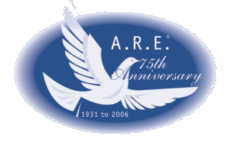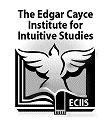| Edited by HENRY REED, Ph.D. |
February 25, 2007
|

Get a Taste of Atlantic University! |
||||||||||||||||||||||||||||||||||||||||||
|
I have had many profound experiences of the fundamental
oneness and interconnectedness of life
|
|
|
|
|
|
I know very clearly that my most essential nature is
spiritual. |
|
|
|
|
|
Even when everything is going well in my life, I still
have the feeling that there must be something more.
|
|
|
|
|
|
I know very clearly from personal experience that ordinary,
daily consciousness is just the tip of the iceberg and
that there are many dimensions or levels of consciousness.
|
|
|
|
|
|
I have a very deep sense of spiritual seeking or the
desire to experience a transcendent wholeness. |
|
|
|
|
|
I have had many experiences of connecting with a deep
source of wisdom and guidance. |
|
|
|
|
|
I know from direct personal experience what it means
to feel an alignment of my personal will with a Higher
Will.
|
|
|
|
|
|
I feel very deeply that life is fundamentally meaningful.
|
|
|
|
|
|
When I learn something new, it is often accompanied
by the sense that I am simply awakening preexistent knowledge
that already lived within me.
|
|
|
|
|
|
I have had multiple experiences in my dreams in which
I feel connected to a spiritual power or wisdom greater
than what I know in waking life.
|
|
|
|
|
|
Your Total Score |
|
Add up your points to the ten items. If your total is 40 or more, then you've already experienced a deep encounter with the transpersonal dimension of life.
A score between 30 and 39 suggests you already have a flavor of the transpersonal dimensions of life.
Below 30 suggests you are probably still in the awakening and opening-up phase of your encounter with the transpersonal dimensions of life.
Part 2: The Transcendent
Remember that one aspect of our definition of "transpersonal" relates to "beyond the personal."
Meditation is the most powerful and direct way to experience the transcendent element of transpersonal.
In the Cayce readings about meditation, the practice is defined as an activity that partakes not of the personality but of the individuality.
This sense of transcending the familiar feeling of personal identity is right at the heart of meditation.
Whether we call it the "individuality"-or, as it is called in the teachings of Gurdjieff and Ouspensky, the "essence"-the human soul has the potential for a sense of self that is connected to rather than separate from everything else.
To read more about Cayce's definitions of meditation, go to this Web site resource:
To read more about Gurdjieff on the "essence" of who we are, go to this Web site resource:
What allows us to experience this transcendent aspect of our consciousness-to make a transpersonal connection through meditation?
One powerful way starts with recognizing exactly how the mind of the "personality" operates minute by minute, hour by hour, day after day.
We are continually occupied (or "pre-occupied") with lists, agendas, demands, expectation, anxieties, and doubts.
We fill up our lives-and hence our minds-with issues that keep us from remembering the transpersonal connections that are always there, even if not seen or felt.
One way to make a movement to transpersonal consciousness is to cease being occupied-to "empty ourselves of all that hinders," as Cayce put it.
Or, put another way, meditation is nothing but creating a situation where the mind has less and less to do!
Some meditation teachers have suggested that the process is a four-stage movement, from
1) "normal," personality mind with all its distractions and preoccupations, to
2) concentrating mind, that has a focal point but still has to work to keep attention from being pulled away by distractions, to
3) meditating mind, which is able to stay attentive to a focal point (e.g., an affirmation or mantra), to
4) contemplating mind that is able to drop even the focal point and "just be"-that is, to experience purely the transpersonal connection with all that is.
For more about this four-stage model and some helpful diagrams, go to the Web site resource at:
See also Chapter 3 of The Inner Power of Silence, which provides an overview of the practical steps for meditating.
The chapter is reproduced electronically at:
Part 3: What Science Knows about Meditation and the Transpersonal Self
It's not just philosophy, psychology, and religion that are interested in the transpersonal dimension of life.
Modern medical science has also shown a big interest, especially in terms of how the transpersonal discipline of meditation translates into physiological factors.
In Creative Meditation by Richard Peterson, a summary is presented of Daniel Goleman's review of the research findings on the remarkable physical effects of consistent meditation:
"Probably the single most reported physiological benefit of meditation-indeed, of systematic relaxation techniques generally-is the drop in blood pressure.
Even the National Institutes of Health (NIH) have recommended meditation (along with salt and dietary restrictions) above prescription drugs as the first treatment for mild hypertension.
"Relaxation through meditation relieves suffering from angina and arrhythmia, lowers blood cholesterol levels, and can enhance blood flow to the heart.
"Although changes taking place through the endocrine system are still not well understood, some research results are startling.
For example, the deep relaxation of meditation may enhance the immune function of the body, with research showing increased defense against tumors, viruses, colds, flu, and other infectious diseases.
"Other meditation research has demonstrated this wide range of psychological benefits:
- Improvement in measurements of personality
- Decrease in neurotic tendencies
- Increase in psychic sensitivity
- Improvement in study efficiency and exam performance
- Increase in efficiency of problem solving
- Improvement in creativity in the visual arts
- Decrease in drug and alcohol abuse
"Of special interest is Daniel Goleman's own research demonstrating the greater tolerance for stress by those who meditate.
He gives us some insight into how meditation accomplishes this:
"People who are chronically anxious or who have a psychosomatic disorder share a specific pattern of reaction to stress; their bodies mobilize to meet the challenge, then fail to stop reacting when the problem is over.
Their bodies stay aroused for danger when they should be relaxed, recouping spent energies and gathering resources for the next brush with stress.
"A mediator handles stress in a way that breaks up the threat-arousal-threat spiral. The mediator relaxes after a challenge passes, more often than the non-mediator.
This makes him unlikely to see innocent occurrences as harmful. He perceives threat more accurately, and reacts with arousal only when necessary.
Once aroused, his rapid recovery makes him less likely than the anxious person to see the next deadline as a threat."
(From The Meditative Mind, by Daniel Goleman, pp. 164-165)
For more about what science is learning about meditation and the transpersonal, go to the Web site resource at:
Next Steps
If this mini-lesson about the transpersonal side of life appeals to you, consider enrolling in Atlantic University course TS 501, Introduction to Transpersonal Studies.
You may sign up to get started with the distance-learning materials at any time. A faculty member will be assigned to you for mentoring, guidance, and evaluation of your course work.
For most people, this is the best course to choose in getting started with Atlantic University.
You may take the course for credit (with the possibility of enrolling in the master's degree program) or take it as a noncredit course for a lower tuition and less academic rigor.
Call the registrar for more information (1-800-428-1512)
or visit the Web site www.atlanticuniv.edu




